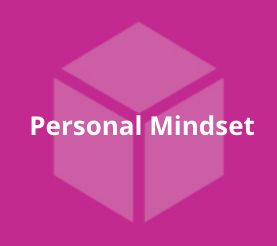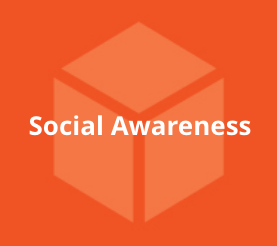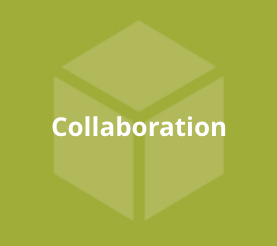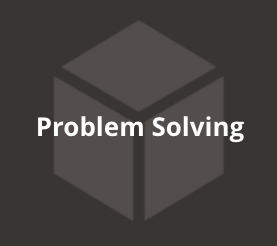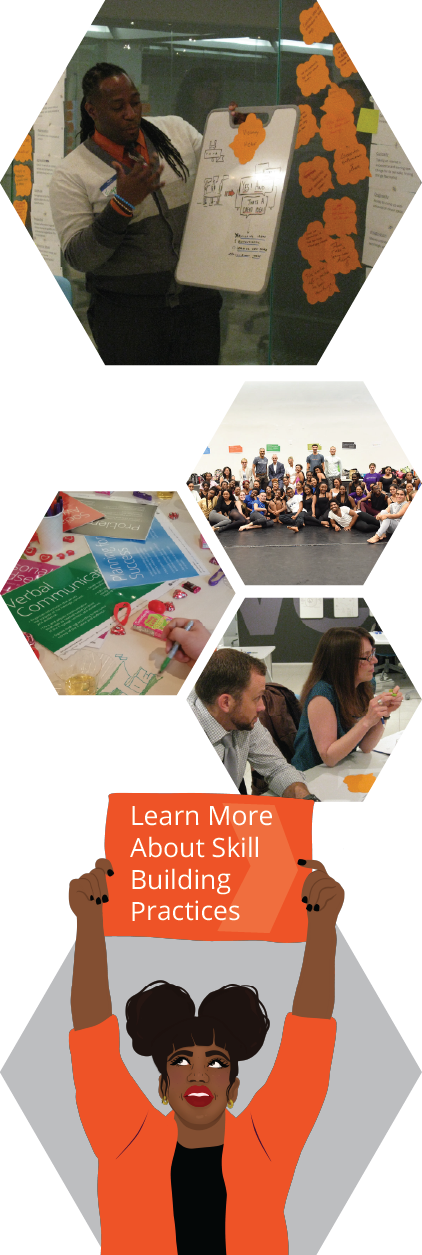Skill Frameworks
MHA Labs 21st Century Skill Frameworks
MHA Labs offers two 21st Century Essential Skills Frameworks intentionally designed for easy adoption by anyone supporting skill building. Our Frameworks have been used by educators, after school instructors, work-based learning specialists, employers, and caregivers engaging in skill affirmations at home. They can be used across all ages. Younger children engage in skill building guided by caring adults while teens are empowered to take the lead.
What are 21st Century Skills?
21st century skills is a domain term for all social emotional skills, soft skills, essential skills, leadership skills, life skills, career readiness skills, and college readiness skills. For work based learning internships, MHA uses the term Hirability Skills to distinguish the specific skills teens need to be considered ready for an entry-level internship.
MHA Labs Building Block Framework: Skill Development from Cradle through Career »
MHA Hirability Framework: Skill Targets for High School/Teen Entry Level Internships »
MHA Building Block Framework
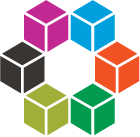 This comprehensive framework encompasses 35 essential skill competencies organized into 6 Building Blocks. This framework can be used across the entire youth development continuum from cradle through career.
This comprehensive framework encompasses 35 essential skill competencies organized into 6 Building Blocks. This framework can be used across the entire youth development continuum from cradle through career.
Visit the Resource Page to download the Framework »
6 Essential Problem Solving Skills

These skills help youth build the inner strength to stay focused, take initiative, and navigate challenges with resilience. A strong personal mindset allows young people to trust their own judgment, learn from experience, and adapt to whatever life throws their way. It’s not about being perfect—it’s about showing up, staying grounded, and continuing to grow, even when things get hard.
7 Personal Mindset Skills That Drive Achievement
- Needs minimal supervision to complete tasks.
- Attempts to complete tasks independently before asking for help.
- Follows rules/directions as required by the task/situation.
- Maintains focus on tasks despite internal (e.g., emotional) and/or external distractions.
- Avoids actions that have produced undesirable consequences or results in the past.
- Strives to overcome barriers/set-backs, seeking assistance when needed.
- Adapts approach in response to new conditions or others’ actions
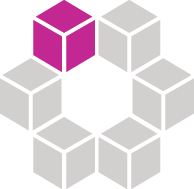
Aliases
Terms often used represent these skills:
Academic Tenacity, Acceptance, Adaptable, Agile, Autonomous, Conscientiousness, Dedicated, Delayed Gratification, Flexible, Focus, Grit, Motivated, Optimism, Perseverance, Persistence, Resilient, Self-Control, Self-Discipline, Self-Regulation, Work Ethic

These skills help youth turn dreams into action. By setting meaningful goals, breaking them down into real steps, and learning how to manage their time and energy, young people build confidence in their ability to shape their own future. Planning for success isn’t just about getting things done—it’s about knowing what matters to you, staying focused, and believing that your actions can lead to real change.
7 Planning For Success Skills That Drive Achievement
- Sets and prioritizes goals that reflect a self-awareness of one’s capabilities, interests, emotions, and/or needs.
- Breaks goals into actionable steps.
- Accurately estimates level of effort and establishes realistic timelines.
- Manages time to complete tasks on schedule.
- Applies existing/newly acquired knowledge, skills, and/or strategies that one determines to be useful for achieving goals.
- Monitors progress and own performance, adjusting approach as necessary.
- Demonstrates a belief that one’s own actions are associated with goal attainment.
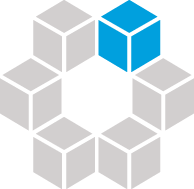
Aliases
Terms often used represent these skills:
Ambition, Assertive, Goal-Setting, Impulse Control, Mastery-Focused Goals, Metacognitive Strategies, Motivation, Multi-Task, Plan, Punctual, Preparedness, Self-Regulation, Self-Reliance, Time Management

These skills help youth grow into thoughtful, empathetic members of their communities. By recognizing how their actions affect others, considering different perspectives, and navigating across cultures and contexts, young people build the foundation for strong relationships and inclusive leadership. Social awareness empowers teens to connect, collaborate, and contribute to a more just and compassionate world.
4 Social Awareness Skills That Drive Achievement
- Recognizes the consequences of one’s actions.
- Balances own needs with the needs of others.
- Takes into consideration others’ situations/feelings.
- Develops and implements strategies for navigating in different cultures/contexts (i.e., manages different patterns of behavior, rules, and norms).
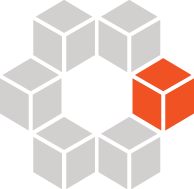
Aliases
Terms often used represent these skills:
Agreeable, Altruism, Appreciation, Code-Switching, Considerate, Concerned, Culture, Cultural Competence, Diversity, Empathy, Emotional Intelligence, Ethics, Fit, Global Awareness, Gratitude, Openness, Perceptive, Pro-Social Behavior, Responsibility, Social Competence, Sociability, Social Intelligence, Social Skills

These skills help youth express themselves clearly, listen with intention, and connect meaningfully with others. Whether sharing ideas, asking questions, or adjusting to different audiences, strong communication empowers young people to be heard and to understand others. It’s not just about talking—it’s about building trust, exchanging ideas, and creating space for dialogue.
5 Communication Skills That Drive Achievement
- Organizes information that serves the purpose of the message, context, and audience.
- Uses and adjusts communication strategies as needed based on the purpose of the message, context, and audience.
- Signals listening according to the rules/norms of the context and audience.
- Seeks input to gauge others’ understanding of the message.
- Asks questions to deepen and/or clarify one’s understanding when listening to others.
- NOTE: Communicating is a process therefore the skills in this building block are written in order of implementation.
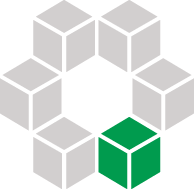
Aliases
Terms often used represent these skills:
Active Listening, Articulation, Elocution, Eye Contact, Listening, Negotiation, Oral Comprehension, Oral Expression, Persuasion, Presentation, Speaking For Understanding, Speaking

These skills help youth become strong contributors and trusted teammates. Collaboration is about more than just working together—it’s about sharing responsibility, valuing diverse perspectives, and navigating differences with respect and clarity. When young people develop these skills, they learn how to build trust, solve problems as a group, and reach shared goals with purpose and care.
6 Collaboration Skills That Drive Achievement
- Completes tasks as they have been assigned or agreed upon by the group.
- Helps team members complete tasks, as needed.
- Encourages the ideas, opinions, and contributions of others, leveraging individual strengths.
- Provides feedback in a manner that is sensitive to others’ situation/feelings.
- Clarifies areas of disagreement/conflict that need to be addressed to achieve a common goal.
- Seeks to obtain resolution of disagreements/conflicts to achieve a common goal.
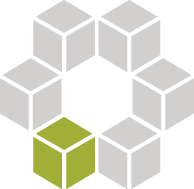
Aliases
Terms often used represent these skills:
Accountability, Contributor, Cooperation, Cooperative Learning, Dependable, Helpfulness, Participation, Peer Interactions, Conflict Resolution, Reliable, Social Problem Solving, Teamwork

These skills help youth become thoughtful, creative decision-makers. Problem solving starts with understanding the full picture—then exploring different possibilities, weighing the options, and choosing the best path forward. When young people build these skills, they gain the confidence to tackle challenges, think critically, and create smarter, stronger solutions in real life.
6 Problem Solving Skills That Drive Achievement
- Defines problems by considering all potential parts and related causes.
- Gathers and organizes relevant information about a problem from multiple sources.
- Generates potential solutions to a problem, seeking and leveraging diverse perspectives.
- Identifies alternative ideas/processes that are more effective than the ones previously used/suggested.
- Evaluates the advantages and disadvantages associated with each potential solution identified for a problem.
- Selects and implements best solution based on evaluation of advantages and disadvantages of each potential solution.
NOTE: Problem Solving is a process therefore the skills in this building block are written in order of implementation.
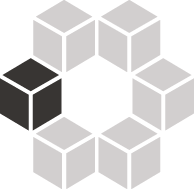
Aliases
Terms often used represent these skills:
Analytical, Cognitive Process, Cognitive Strategies, Creative, Critical Thinking, Decision Making, Expert Thinking, Information Management, Innovative, Judgment, Process Oriented, Strategic, Thinking, Reasoning, Troubleshooter
MHA Building Block Framework
MHA isolated 8 Building Block skills that are statistically correlated to a teen’s internship readiness called Hirability Status. This allows adopters of the Building Block Framework to also target a core set of skills for teens who are pursuing internships.
- Needs minimal supervision to complete tasks.
- Maintains focus on tasks despite internal (e.g., emotional) and/or external distractions.
- Adapts approach in response to new conditions or others’ actions.
- Manages time to complete tasks on schedule.
- Recognizes the consequences of one’s actions.
- Balances own needs with the needs of others.
- Helps team members complete tasks, as needed.
- Identifies alternative ideas/processes that are more effective than the ones previously used/suggested.
- MHA Labs built a skills database of over 21,000 essential skill competencies from 100’s competency frameworks, assessments and research reports. Each of these sources included academic research findings as well as survey data from 1000’s of practitioners in education, after school, and employment.
- MHA Labs isolated 300 skills that were deemed most universal across the research dataset.
- MHA Labs engaged over 125 teachers, after school instructors, workforce developers, researchers, parents, and teens to prioritize 100 that could be important to all learners of all ages and abilities across all contexts.
- MHA labs partnered with Associate Professor Jonathan Rosa Ph.D whose research “examines how race and language are jointly defined, experienced, and transformed across distinctive historical, geopolitical, and institutional contexts. He collaborates with schools and communities to understand these phenomena and challenge the forms of vulnerability to which they correspond.” We asked Jonathan to apply his unique expertise to examine each of the 100 proposed skills for their cultural implications. A set of proposed skills were removed on the basis that they were actually norms of white supremacy culture not actually essential skills. Another set removed for their cultural ambiguity which would create inequity across different cultures. Lastly, he recommended edits to convert culturally normed language like “speaks professionally” into an actual skill competency. This narrowed the skills list to 40.
- MHA partnered with Tara Myers, Ph.D., an accomplished assessment development leader with over 20 years of experience. She has published and presented on job analysis, test development, talent management, and psychometrics. We asked Tara to apply her expertise to examine our list of 40 skills and review each skill for their capacity to be not only taught but also authentically and equitably assessed. She refined the list and definitions into 35 core competencies that could be assessed through an observational assessment.
- MHA Labs classified the skills into 6 categories that would make the most sense to the practitioner working with youth. Future statistical cluster analysis on assessment results produced slightly different clusters, but the existing system of clustering was effectively producing the desired results so the framework was not changed. Any disruption to existing adoption was also deemed too high a risk.
- MHA Labs took the list of 35 core competencies and created tools, resources and assessments for use in school, after school, and work-based learning.
- After multiple cycles of work-based learning internship assessing, MHA analyzed the data to isolate which Building Block skills had the greatest impact on an employer’s perception of a teen’s work readiness “Hirability Status”. These became the Building Block Internship Targets.

How we identified the 8 High School/Teen Internship Hirability Targets+MHA Labs commissioned a research survey study with 272 participants that closely matched the profile of High School Internship Supervisors. that consisted of 23% front line managers, 4% middle managers, 13% managers of both front line employees and other managers, and 60% individuals (typically small proprietors) who managed no one.
MHA utilized the same statistical modeling used to create its Hirability Framework. The statistical analysis focuses on how well skill survey items predict a youth’s Hirability Status. By calculating the R Squared values for each survey, MHA Labs is able to identify the fraction of the Hirability Status that can be explained by adding together the contributions of (in this case) all the skill-related survey items from a given survey. R Squared is obtained through multiple linear regression. MHA Labs additionally adjusted for the length of the survey.
Hirability Status is the Average of 3 Items:
- If I had a job opening, I would hire this person
- I would recommend this person to a colleague, for a similar position/li>
- I would seek out this person to be on my next project/li>
Results: The final tested version isolated 8 Building Block Skills that had an R Squared Adjusted value of 0.86. This means that 86% of a teen’s Hirability Status can be explained by these 8 skills. This is nearly identical to the Hirability Skill Framework. Therefore both options are viable and powerful predictors of internship readiness.
MHA labs is profoundly grateful for the contributions of Associate Professor Jonathan Rosa Ph.D, Associate Professor of Education and, by courtesy, of Linguistics, of Anthropology and of Comparative Literature, Stanford Graduate School of EducationProfessor Rosa’s research “examines how race and language are jointly defined, experienced, and transformed across distinctive historical, geopolitical, and institutional contexts. He collaborates with schools and communities to understand these phenomena and challenge the forms of vulnerability to which they correspond.” We asked Professor Rosa to apply his unique care and expertise to examine the cultural implications of 21st century skills and aid us in developing a culturally ethical skills framework.
While 21st century skills research appears no-nonsense, MHA Labs is conscious that 21st century skills are socially constructed and subject to wide interpretation. Unfortunately, many research efforts do not explore cultural determination and mistakenly promote cultural norms as universal skills. To mitigate cultural bias, MHA Labs engaged a cultural anthropologist and linguist to analyze and debate each skill proposed for the framework…
- SKILLS REDEFINED: Certain skills were either rewritten more technically to reduce ambiguity or were explicitly rewritten to reduce bias. For example, many skill frameworks list “articulate” as a verbal communication skill. Whether or not someone is considered articulate will be depend on the giver and receiver’s language proficiency and perceptions. Therefore MHA Labs rewrote this skill as “Uses and adjusts communication strategies as needed based on the purpose of the message, context, and audience”. Being articulate can now be taught as a communication strategy needed for certain social and professional contexts that demand it.
- SKILLS REFRAMED: Certain skills were deemed entirely determined by culture and context and could not be written objectively. These skills were not eliminated but reframed as a new social awareness skill. “Develops and implements strategies for navigating in different cultures/contexts (i.e., manages different patterns of behavior, rules, and norms)”. MHA Labs does not minimize the importance of teaching youth cultural norms that may be relevant to their college and career path. MHA Labs simply recommends that they be taught explicitly as cultural attributes rather than skills. If not, practitioners and policymakers perpetuate the dangerous prejudice that youth from the dominant culture are inherently more skilled that youth who are not.
The following are common examples of attributes determined by culture or context. Organizations and employers should provide explicit guidelines for how they define these in their own context.
- Active Listening
- Appearance
- Appreciative
- Attire
- Attitude
- Ethical
- Healthy Relationship
- Honesty
- Hygiene
- Initiative
- Integrity
- Professionalism
- Respectful
- Responsible
- Self Awareness
- Self Efficacy
- Self Image
- Sharing Emotions
- Social Responsibility
- Trustworthy
- Work Ethic
MHA Hirability Framework
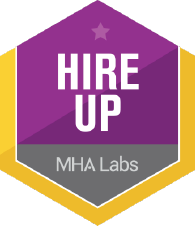
This framework was specifically designed for High School/Teen entry-level internships. Internship programs have shorter training periods compared to other youth development programs and are supervised by employers not trained youth developers. Therefore, internship programs needed a framework that was quick to understand and implement.
Visit the Resource Page to download the Framework »
The Hirability Framework has 4 Key Drivers of internship readiness encompassing 12 critical skills.
All of these skills were statistically proven to matter to internship performance. Every one of them counts.
Professional Attitude
- Brings energy and enthusiasm to the work
- Graciously accepts criticism
- Takes responsibility for his or her actions and does not blame others
- Stays calm, clear headed and unflappable under stress
Team Work Ethic
- Actively looks for additional tasks when own work is done
- Actively looks for ways to help other people/li>
Problem Solving
- Unpacks problems into manageable parts/li>
- Generates multiple potential solutions to problems/li>
- Identifies new and more effective ways to solve problems/li>
- Actively looks for ways to help other people/li>
Time Management
- Manages time and does not procrastinate/li>
- Gets work done on time/li>
- Arrives on time and is rarely absent without cause/li>
MHA Labs Hirability Skills research was conducted to isolate the smallest number of skills that produce the greatest impact on internship performance. MHA Labs skills survey research was conducted over a 7 year period beginning with a 4,000 item work readiness skill database. MHA Labs collaborated with research analysts, subject matter experts, and practitioners to isolate and test 102 different items on 7 unique intern performance review designs. In total, the MHA research database included over 12,000 internship supervisor performance reviews. Note, performance reviews are conducted on each individual youth intern.
MHA utilized the same statistical modeling used to create its Building Block Hirability Targets. The statistical analysis focuses on how well skill survey items predict a youth’s Hirability Status. By calculating the R Squared values for each survey, MHA Labs is able to identify the fraction of the Hirability Status that can be explained by adding together the contributions of (in this case) all the skill-related survey items from a given survey. R Squared is obtained through multiple linear regression. MHA Labs additionally adjusted for the length of the survey.
Hirability Status is the Average of 3 Items:
- If I had a job opening, I would hire this person
- I would recommend this person to a colleague, for a similar position
- I would seek out this person to be on my next project
Results: The final tested version with only 12 items had an R Squared Adjusted value of 0.83. This means that 83% of a teen’s Hirability Status can be explained by these 12 skills. This is nearly identical to the Building Block High School/Teen Internship Targets. Therefore both options are viable and powerful predictors of internship readiness.

